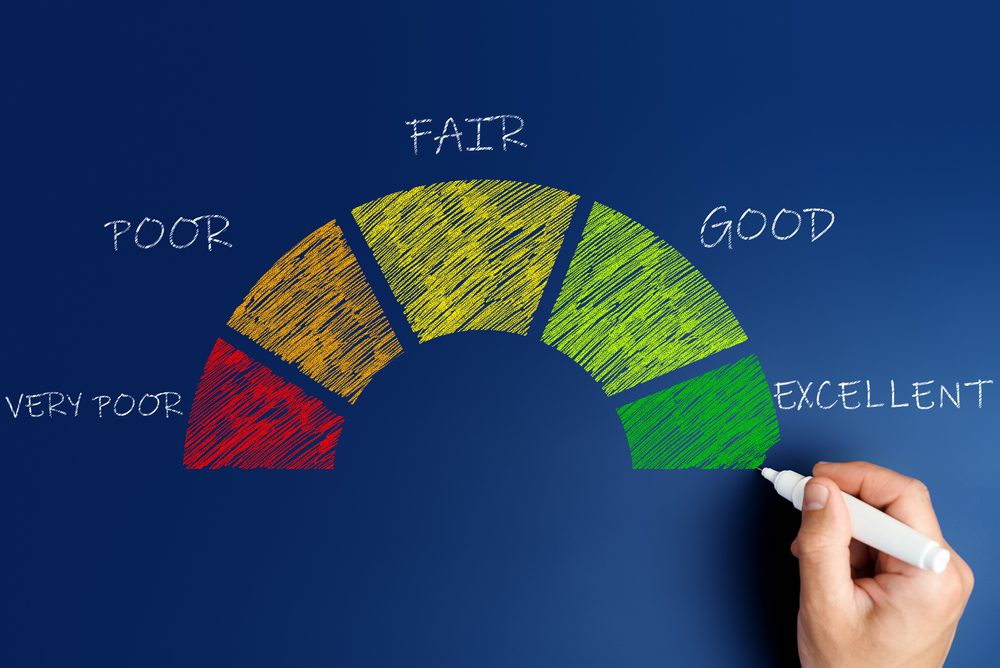Advertiser Disclosure: Many of the companies featured here provide compensation to us. This is how we maintain our free service for consumers. Compensation, along with hours of in-depth editorial research, determines where & how companies appear below.
One’s creditworthiness is typically assessed through credit scores. Most of the time, the higher your credit score, the greater your creditworthiness, which means the better you’ll look to potential creditors or lenders.
On the contrary, a poor credit score usually indicates an unsafe credit risk, so lenders typically offer higher interest rates and fewer loan options. Hence, most borrowers would want to improve their credit scores.
The thing is, despite putting the right plans and necessary actions in motion, there’s a tendency to be stuck with a low credit score. If you’re experiencing this, you’re in the right place. Here are four most likely reasons your credit score hasn’t been increasing lately.
Late Payments
Payment history is the No. 1 measuring factor in deciding your credit score. It accounts for 35% of your FICO score, a three-digit scoring model based on your credit information that has been used by 90% of top lenders for years. That’s why late payments will usually leave an adverse bearing on your credit report.
On a positive note, late payments won’t impact your credit score if they’re not at least 30 days past due. Although most creditors immediately consider a payment late, even if it’s just one day past due and you may even have to pay a late fee, it won’t get reported to the credit bureaus.
However, with just one late payment that’s a month past due or more, your credit score will immediately make a huge drop. Even worse, it normally stays on your credit report for seven years. That explains why you’re still having trouble increasing your score even though it’s been a while since you missed a payment.
Your credit score usually takes a year or so to recover from the big hit it took from late payments. While the effect of it may become less severe over time, exert effort to make your credit score rise, such as opting for automatic payments and making on-time payments consistently. Additionally, pay overdue bills as soon as possible and ask for a repayment plan to prevent further damage to your score.
Don’t engage in the habit of paying late as much as you can. Find a way to pay them on time. For example, if you need money to pay costs around 200 dollars or less, look around your belongings for the best things to pawn for 200 dollars. Doing this helps you get the money you need immediately.

High Credit Utilization
The credit utilization ratio is the total available credit that you’re using. It has the biggest impact among all the factors that contribute to your credit score on a month-to-month basis, accounting for 30% of your FICO score.
The rule of thumb is to lower your credit ratio utilization ratio, specifically under 20% to 30%, to better your credit score. Better if you keep it closer to 0% to help improve your score or build credit fast. On the contrary, if your balances are higher than that range, it could be one of the reasons why your credit score is not improving.
Decreased Credit Limit
A credit limit reduction is commonly applied to revolving credit accounts for several reasons. That includes limiting the borrowing risks of new customers, if existing borrowers under or over-use their cards, or when the economy is in turmoil.
If you’re not a new client and your lender decreases your credit limit, you’re likely to go over your limit, especially if you’re used to a higher limit. This increases your credit utilization ratio, which consequently impacts your credit score.
In these cases, contact your credit card issuer to increase your credit limit to lower your utilization ratio. Then, pay down your current balance to raise your approval rate. If you’re stretched for cash, consider asking for a hand from online lenders.
Alternatively, open a balance transfer credit card. It can increase your overall credit limit, which, again, lowers your credit utilization rate. What’s more, you’ll be able to pay off your balance faster if you qualify for a 0% introductory rate. If this doesn’t work, you should consider living below your means and lowering your credit card spending.
Derogatory Marks
Late payments are one example of a derogatory mark on your credit report. Other derogatory items that banks or credit issuers place on credit reports are charge-offs (i.e., an account in collections), bankruptcies, foreclosures, judgments, tax liens, and lawsuits.
While derogatory marks don’t make up your credit score, they negatively affect it for nearly a decade. Unlike hard credit inquiries that fall off your credit report after two years, derogatory marks stay on your reports for seven to 10 years.
Fortunately, late payments, as mentioned earlier, and other derogatory marks go down over time. In addition, they could be taken off your credit reports, especially if they’re not legitimate. Just contact professionals to verify it. If it’s just an error, call credit bureaus to dispute it.
Final Thoughts
Your credit score doesn’t improve overnight. Depending on your current standing, it takes persistent efforts for around three months or longer. While the waiting period can be distressing for most credit-conscious consumers, it’ll be worthwhile. As the saying goes, hard work reaps success.




